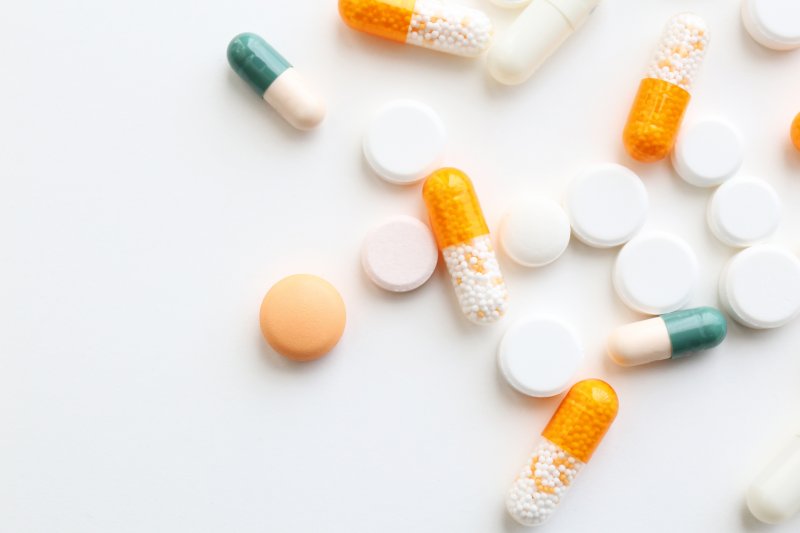
In today’s day and age, we have access to all sorts of medicines that save lives and keep people healthy. Nearly 75% of Americans take at least one prescription drug while 20% use at least five. They do a lot of good however, sometimes medications can have their downsides. Some prescriptions have side effects that can increase your chances of developing dry mouth, tooth decay, and other issues in the mouth. Your dentist in Murphy shares what they are and some steps you can take to prevent your oral health from declining as a result of these medications.
Which Medications Lead to Tooth Decay?
There all are sorts of drugs out there that have side effects the have a negative impact on your mouth. Here are some of the most common:
- Immunosuppressant drugs: This is usually used for patients who have had a transplant or another major surgery that could cause the body’s immune system to go into overdrive. Certain types of this class of drugs can cause gingival overgrowth. Symptoms associated with this include inflammation, bad breath, and plaque buildup on the teeth.
- Aspirin: This common over-the-counter pain medication can cause negative side effects like mouth sores and bleeding of the gums.
- Antihistamines: These are mostly used for hay fever and nasal congestion in order to help patients breathe more easily. However, this can decrease the amount of saliva that you are producing. When this happens, you are more vulnerable to bacterial growth in the mouth and ultimately, tooth decay.
- Antibiotics: Certain antibiotics can have negative effects on the teeth and alter the way that foods taste. It can negatively affect the tooth enamel of young children.
- Chemotherapy treatment: Some chemotherapy medications can alter regular mucus membrane functions and contribute to tooth decay.
How Can You Prevent Tooth Decay Related to Medications?
If you are currently taking a medication that could be putting your oral health at risk, remember to take the following precautions:
- Good oral hygiene: When taking one of these medications, it’s especially important that you are brushing twice and flossing once daily. Keeping your mouth clean and healthy will reduce your chances of tooth decay.
- Take your medicine with meals: Taking your medication while eating will reduce the impact they have on the teeth.
- See your dentist: By visiting your dentist every six months, you can help prevent tooth decay and stop it in its tracks.
If you’re taking a medication that increases your risk of oral health issues, you should be aware of the effects it can have on your smile. But there’s no need to panic! Taking steps to reduce the impact they have on your teeth is key to a healthy smile!
About the Author
Dr. Khushboo Gandhi is a well experienced dentist who has been working in the field for over a decade. She earned her dental degree in India before moving to the USA and completing the Advanced Education program for international dentists at the Oklahoma College of Dentistry. Dr. Gandhi is committed to taking continuing education courses at Baylor College of Dentistry and is a member of the American Dental Association, Academy of General Dentistry, and the Texas Dental Association. For more information or to schedule an appointment, visit her website or call (972) 532-6506.
